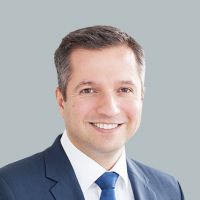A cardiology specialist, often known as a cardiologist, is a doctor who has been specially trained to find, treat and prevent diseases of the heart and its associated blood vessels. Cardiology is a speciality of internal medicine, and there are further subspecialties within this medical discipline, which allow cardiologists with special interests and experience to develop a deeper knowledge of some aspects of cardiology. These additional specialist fields include:
- cardiac electrophysiology, which studies, diagnoses and treats the heart’s electrical activities and functions
- echocardiography, which uses various kinds of ultrasound (high-frequency sound waves) to generate images of the heart – a technique routinely employed in cardiology
- interventional cardiology, a growing field that uses internal catheters to perform a range of cardiac procedures
- nuclear cardiology, which uses radioactive substances in order to diagnose and treat some forms of heart disease
- cardio-geriatrics, which concerns cardiovascular disorders in older adults
Though all cardiology specialists study heart disorders, cardiology regards the study and treatment of adult and child heart conditions as two separate disciplines. In effect, a cardiologist will only treat adult patients and a paediatric cardiologist will only treat children.

In addition, most heart surgery is not undertaken by cardiology specialists but is the responsibility of cardiothoracic surgeons. Nevertheless, it is common for cardiologists to perform some procedures, such as the installation of pacemakers and heart valves.
A cardiologist typically acts as a consultant to other doctors and specialists who actually carry out the heart treatments, and those in other medical fields. These experts may include:
The cardiology specialist’s field of treatment includes the (medical) diagnosis and treatment of
- congenital heart defects,
- heart failure and coronary artery disease, as well as
- hypertension (blood pressure),
- valvular heart disease and
- electrophysiology (which includes conditions involving irregular heart rhythms).

Coronary artery bypass surgery
Likewise, a paediatric cardiology specialist will diagnose and treat cardiac problems in children, which may also include the detection, diagnosis and treatment of cardiac conditions in a foetus, before childbirth occurs.
Although the cardiovascular system itself is entirely relevant to any study of heart function, a cardiology specialist will not usually be called upon to investigate any matters related to haematology (the study of the blood circulation system and blood disorders). However, there are still some elements of blood circulation that will concern the work of cardiologists, for example, blood tests and any investigations which focus upon a reduced oxygen carrying capacity (e.g. in cases of anaemia).
Much of a cardiology specialist’s workload involves making assessments of medical evidence and offering advice to patients or other medical professionals. Typical examples might include:
- evaluating evidence of heart murmurs, or changes in ECG (electrocardiogram) readings
- supporting patients’ return to normal life after major heart disease
- counselling patients about the risks of heart disease and suggesting preventive measures
- advising on treatment responses for major heart rhythm problems, heart failures and heart attacks
- advising on procedural decisions relating to heart surgery, balloon angioplasty and cardiac catheterisation
Cardiology specialists will often be required to recommend and even perform a range of tests designed to diagnose and/or treat a heart condition. This may involve equipment and procedures such as:
- an echocardiogram, which creates an internal ultrasound image showing the detail of heart structure and function
- an ambulatory ECG, which records heart function while movement takes place, in order to check for any abnormal heart rhythms
- an exercise test, which measures the heart’s performance (and any limitations) during various types of activity
- a cardiac catheterisation, which uses a camera attached to a tiny tube, and possibly some surgical tools, to capture images of the heart, investigate how the heart functions, test the heart’s electrical responses, or perhaps complete a procedure to remove a blockage
A cardiology specialist will first of all study for four years at medical school, followed by a further three years of study and training in general internal medicine. Once this educational phase has been completed, a cardiologist is then required to devote a further three years to specialised training. Those who wish to develop further cardiology subspecialties (such as in interventional cardiology) must then spend a further two years training in their chosen specialist area.
To achieve certification as a cardiology specialist, a doctor who has completed the training must then sit a rigorous examination. This examination will test not only the candidate’s theoretical knowledge, but also their practical skills. Any subspecialty training will be examined in the same way.
Find further information about cardiology.

















